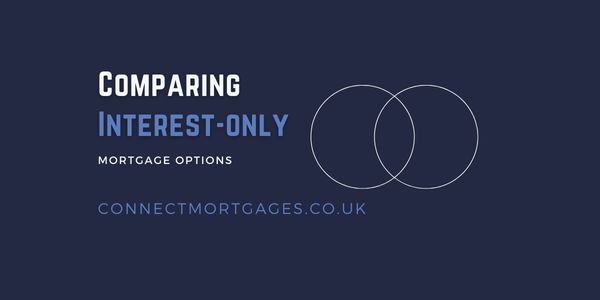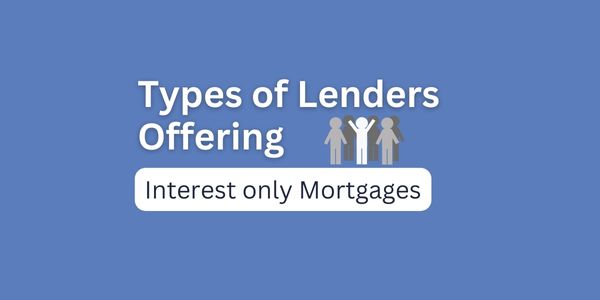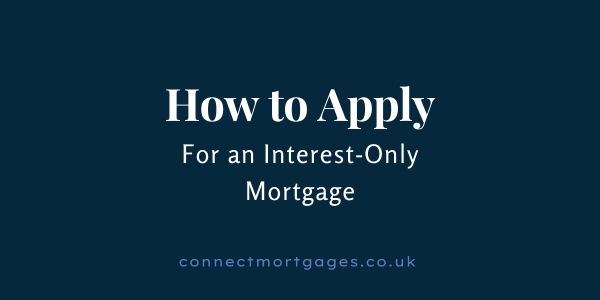Are you a first-time home buyer considering getting an interest-only mortgage? An interest-only mortgage is a type of loan that allows the borrower to pay interest each month on the loan balance but no principal. If you wonder if this option suits your situation, read on to learn more about interest-only mortgages for first-time buyers.
You’ll gain an understanding of interest-only mortgages, their benefits and risks, and how to compare interest-only mortgage options.
Knowing all the details can help you make an informed decision about your financial situation. Let’s get started!
What is an interest-only mortgage?
An interest-only mortgage is a type of loan in which you are only required to pay interest for a set period of time.
During this period, the principal amount of your loan remains unchanged, and you won’t need to pay the principal.
After the interest-only period ends, which typically ranges from five to ten years, you will begin to make payments on both interest and principal.
Benefits and Risks of interest-only mortgages for first-time buyers
Interest-only mortgages can be beneficial for first-time buyers. One of the main advantages is that interest-only payments are typically lower than payments on a traditional mortgage, which makes it easier to manage monthly expenses.
Additionally, interest-only mortgages allow you to reinvest the saved money into investments or other financial opportunities while you wait for your home’s value to appreciate.
However, interest-only mortgages also come with some risks.
One of the primary concerns is that interest-only mortgages require discipline in saving and investing money to avoid a balloon payment at the end of the interest-only period.
Additionally, interest rates on interest-only mortgages are higher than those on traditional mortgages, which can make them more expensive in the long run.
Comparing interest-only mortgage options

When comparing interest-only mortgage options, the interest rate, the interest-only period, and the lender’s reputation should be considered.
It is also a good idea to research each lender’s customer service ratings, as this will indicate how helpful they will likely be during the loan application process.
Additionally, read the fine print of any interest-only mortgage you are considering to understand all the terms and conditions.
The cost of taking out an interest-only mortgage
The cost of taking out an interest-only mortgage will depend on various factors, such as the interest rate and the length of the interest-only period.
Additionally, there may be fees associated with taking out the loan that you should factor into your calculations.
Lastly, compare interest rates between lenders to ensure you get the best deal possible.
Qualifying for an interest-only mortgage
To qualify for an interest-only mortgage, you must meet certain requirements.
Generally, lenders will require a good credit score and a steady source of income.
Additionally, lenders may require that you have a down payment of at least 20% to qualify for the loan.
Some lenders may also require additional documents such as tax returns and bank statements.
By understanding interest-only mortgages and their associated benefits and risks, you can decide which option is right for your financial situation.
With the right information, you can be confident that you are making the best choice for your first home purchase.
Types of lenders offering interest-only mortgages

Many types of lenders offer interest-only mortgages, including banks, credit unions, online lenders, and mortgage brokers.
Each lender has different interest rates and terms for their interest-only mortgage products.
Shopping around and comparing interest rates is important to ensure you get the best deal.
It is advisable to read lender reviews to learn about other people’s experiences and ensure that the lender is reputable.
Factors to consider when choosing an interest-only mortgage
There are a few factors to consider when considering an interest-only mortgage. First-time buyers should research and weigh the pros and cons before committing to interest-only payments:
- Budgeting: Interest-only mortgages require careful budgeting, as future interest payment increases may be unpredictable.
- Repayment strategy: Homebuyers should identify a repayment plan that best suits their financial situation. This could include increasing monthly payments or making lump sum payments when possible.
- Loan term: First-time buyers should consider the most suitable loan term for their lifestyle and budget. The longer the loan, the more interest paid in total, but also lower monthly payments.
- Affordability: It’s important to plan for interest-only payments within your budget and know that loan interest can change with market conditions.
- Credit rating: To qualify for the best interest rates, first-time buyers should ensure their credit score is in good shape.
- Tax implications: Interest-only mortgages are tax deductible based on individual circumstances, so it’s important to understand the tax implications.
- Fees: Be sure to factor in any extra fees associated with interest-only mortgages, such as closing costs and loan origination fees.
- Prepayment penalties: It’s important to understand whether there are any prepayment penalties and how they can affect interest-only payments.
Alternatives to interest-only mortgages for first time buyers
For first-time buyers, interest-only mortgages can be a difficult option. Some alternatives may fit better with their needs and financial capabilities.
Some alternatives include:
- Fixed interest rate mortgage: A fixed interest rate mortgage will remain the same over a certain period and offer the borrower stability.
- Adjustable interest rate mortgage: An adjustable interest rate fluctuates with market rates, which may benefit some borrowers depending on the market.
- Balloon mortgage: This type of mortgage is typically used for short-term financing and requires the borrower to pay a lump sum at the end of the loan term.
- FHA loan: An FHA loan is a government-insured loan that provides borrowers with more flexible underwriting standards than other loans, making it easier to qualify for a loan.
- VA loan: A VA loan is another government-insured loan, but this one is specifically for military personnel and veterans, offering even more lenient requirements.
These are just a few alternatives to interest-only mortgages. Before making a decision, it’s important to research and understand each type’s terms.
How to apply for an interest-only mortgage

If you are a first-time buyer and interested in an interest-only mortgage, there are certain steps that you should follow:
- Research: Research only interest mortgages to determine if they are the right option for you. Check interest rates and terms different lenders offer and compare them to choose the best one.
- Documents: You must provide documents such as proof of income, bank statements, credit score and other documents that the lender may require.
- Application: Fill out the application form for interest-only mortgages with your chosen lender. Make sure all the information you provide is accurate and up to date.
- Payment: Set up a payment plan with your lender. This should include interest payments, a repayment schedule, and any additional fees or charges associated with the mortgage.
- Negotiation: Try to negotiate the interest rate and other terms on the loan with your lender if possible.
- Closing: Once approved, close on the interest-only mortgage and begin making payments according to your agreement.
- Monitor: Monitor interest payments and repayment schedules carefully to keep you on track with loan repayments.
Tips for getting approved for a first-time buyer’s interest-only mortgage
There are several things to remember when getting approved for an interest-only mortgage as a first-time buyer.
Credit score:
Make sure your credit score is as high as possible. A higher credit score will give you a better chance of getting approved for an interest-only mortgage.
Down payment:
Having enough money for a down payment on the interest-only mortgage is essential. The more you can put down, the better.
Budget:
Have a budget to ensure you can afford interest payments and other costs associated with the interest-only mortgage.
Research:
Research and shop around to find the best interest rate, terms, and fees offered by different lenders.
Be patient:
Take your time when applying for an interest-only mortgage. The process can take several weeks or even months, so be patient and wait for the results.
Compare:
Compare different lenders’ interest rates, terms, and fees to get the best deal possible.
Plan:
Create a plan to help you make timely payments and stay on top of interest payments and repayment schedules.
Talk to a professional:
If you are uncertain or have questions, consult a financial advisor or mortgage broker for guidance on interest-only mortgages.
An interest-only mortgage can be an attractive option for first-time buyers, but it is crucial to understand the risks and benefits involved before applying. Research interest rates and terms offered by different lenders, create a budget and talk to a professional if you have any questions. With careful planning and research, interest-only mortgages can help make homeownership a reality.
Thank you for reading our publication “Interest Only Mortgage First Time Buyer | Mortgage Brokers.” Stay “Connect“-ed for more updates soon!







